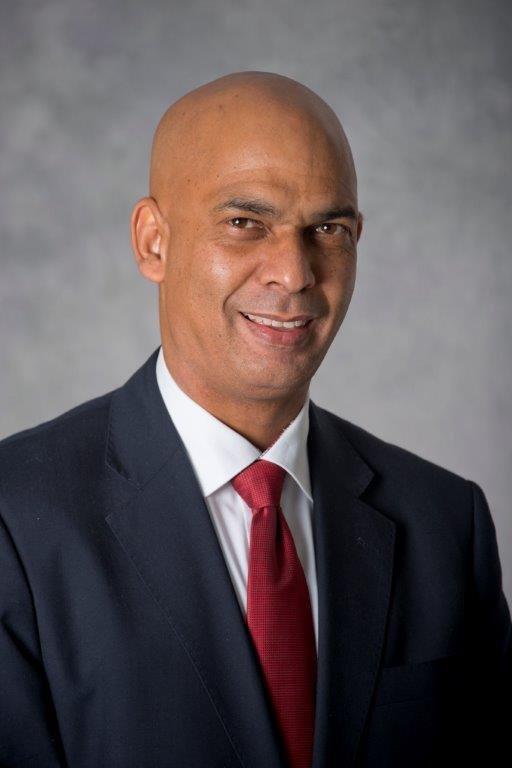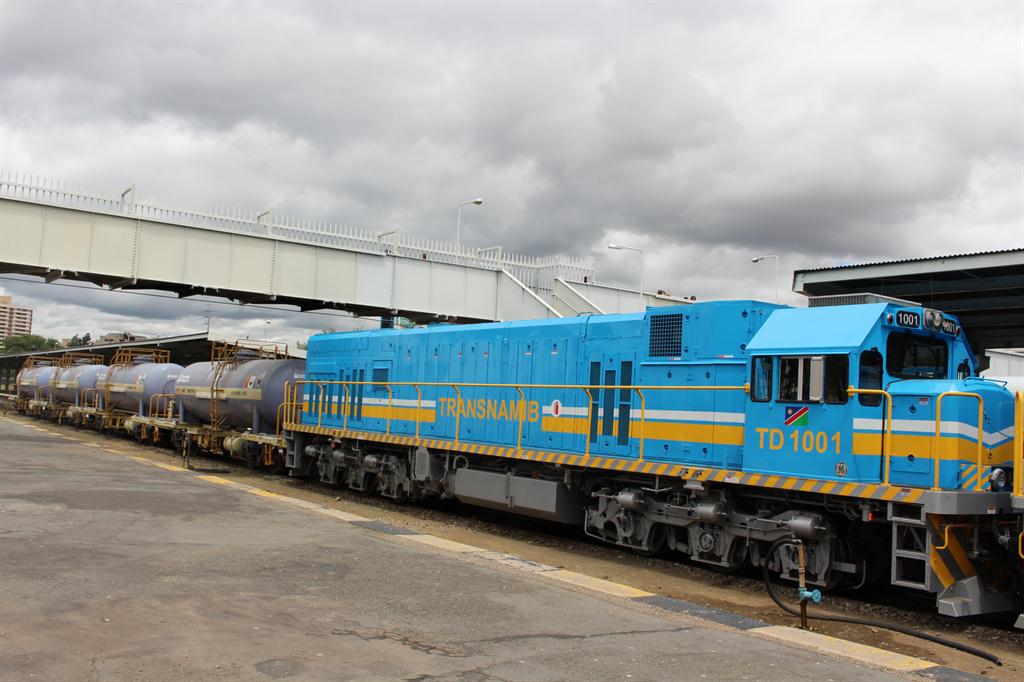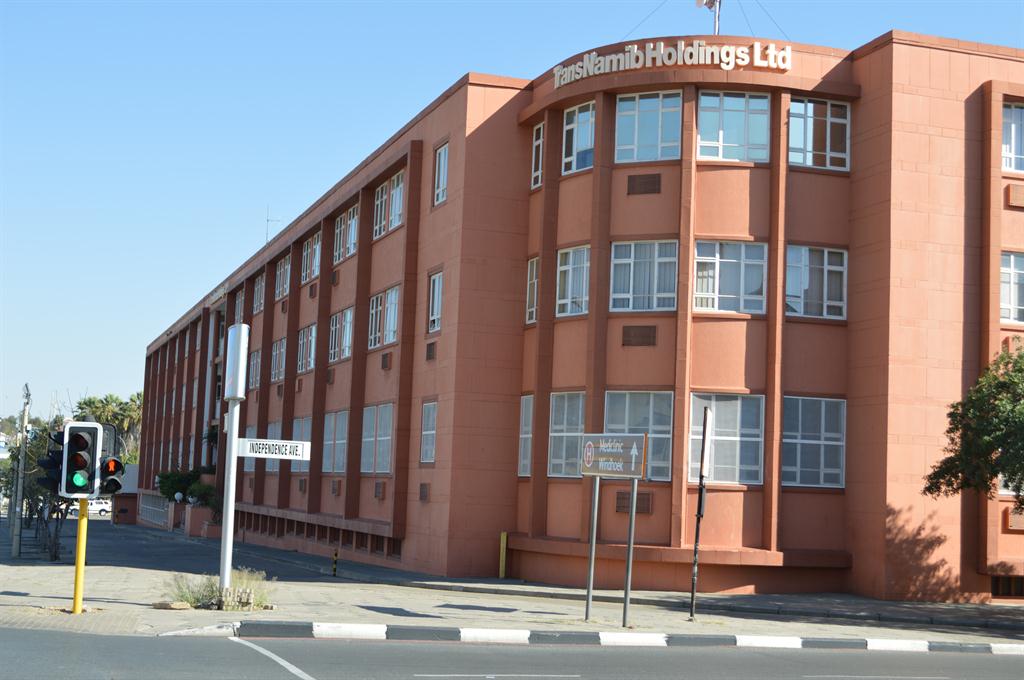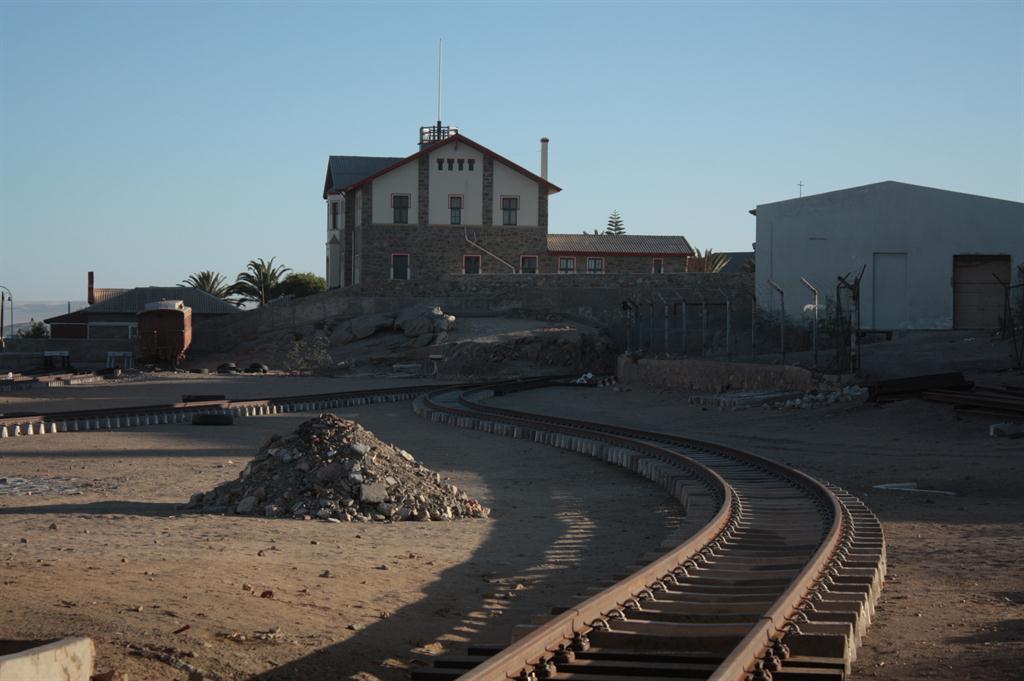TransNamib must grow own business, says new boss
Johnny Smit says he is excited about the opportunities a transformation to profitability at the railway company can bring about. Catherine Sasman spoke to him.
MW: In the middle of last year, Minister Leon Jooste described TransNamib as “very complicated, in a traumatic period”. It is pivotal to the economy yet is considered as one of the most problematic and challenging SOEs. What is your diagnosis of the company so far and what do you think is needed to turn it into a profitable institution?
JS: TransNamib is currently in a difficult space. My diagnosis is not finalised. I need to have a basic understanding of the business of TransNamib. That is what I am doing now. I’m reading, I’m learning, I’m listening and taking advice and information from my colleagues. Through this process, I believe, when I have a better understanding in the immediate term we have to get TransNamib out of the ICU and within the short term try and fix what we can fix.
In the short and medium term we have to look at the way we do things and challenge ourselves and improve the manner in which we are doing things.
From my preliminary observation, the problem at TransNamib is management; we are not managing our assets well. There is a negative return on the assets. That is where I would want to focus on. But I cannot do that unless I understand the business better and create a relationship between the employees who can improve the environment so that the train can move faster.
MW: A number of turnaround strategies have been on the table since 2002. What turnaround has so far been done, how has it affected the operations of TransNamib and what did it cost the taxpayer?
JS: I first need to see exactly where we are; at which station are we? Only then can I say in which direction we need to go. I have perceptions of where we are but I need to confirm this.
The main perception, as I said earlier, is about the management of the company and improving processes. Thirty years ago we were carrying a small parcel from South Africa and we did the whole process out of the customer services premises. Does it still make sense today because of the increased road competition?
I believe we should focus on bulk commodities, the bigger freight. However, it still needs to move from one point to the next. We need to figure out how best to do this. We also need to look at the areas that we are good at or which we should be good at and focus on those. If we need to move it a little bit further, maybe we should consider a strategic partner to work with us on that.
This does not mean privatisation. In the short and medium term I do not see that privatisation is an option. With the value of the assets that we have, we can optimise that to increase our revenue base. If we outsource it or if we get a partner, we still need to manage that contract. But if we don’t even have a good idea of that business, how can we manage it?
MW: TransNamib previously was getting its asset register in order. Has that been completed? TransNamib owns a lot of property. Previously an observation was made that previous managers did not know where all these assets, particularly TransNamib’s real estate, are.
JS: At this stage there is a lot of progress I need to understand. When it comes to property, as a business unit of TransNamib, it needs to be optimised, which it is not at this stage.
We have a list of our properties and it is one of my tasks on hand to spend on the next two weeks. Properties will be a critical component of our short- and medium-term plans.
The short-term plan is to get us out of ICU. The medium-term plan is to start increasing our capacity, which for now means our freight capacity. Our main focus will be rail. Road transport is a matter under discussion in terms of our business plan.
MW: While the railway lines in the country are being upgraded incrementally, are you happy with the current condition of the railways?
JS: Rail belongs to the government, which is responsible for the upgrading and maintenance of the rail. We, however, need to strengthen that partnership so that it is in alignment with our business growth.
MW: During some discussions on turnaround strategies it was mentioned that TransNamib should perhaps stop its road transport services. This is despite the fact that TransNamib has had some of the best truck drivers in the country and even the region due to the kind of training they have received.
JS: That decision has not been made yet. I still need to relook at the existing business plan. However, in terms of transforming the business you cannot look at the staff. You first need to look at the opportunities of the businesses and then you realign your staff and other resources to that. That is what we need to do.
We are not here to just send people home. We will always find a way to optimise the skills we have and if there are new skills to be learned, then we have to do that. But the company must also regain its culture of continuous learning, training and development.
At least over the last ten years there has been very limited training and development although it was a core part of TransNamib’s business. This started before my time, and is being done in partnership with NTA.
The technical units of TransNamib still conduct training. There are students from NIMT and other technical schools. This is an ongoing process.
MW: Part of the turnaround strategies that have been on the table so far was what was called the “rightsizing” of the staff through voluntary exits or voluntary early retirements. TransNamib board chairperson Paul Smit in May last year mentioned that this “streamlining” was “on course”. Is TransNamib (still) considering staff cuts as part of its turnaround? If so, how many workers from which departments are likely to be affected? And, if so, when can we expect layoffs?
JS: There is a process already in place which started earlier. In terms of moving forward, we need to relook at where our business is now, where we need to go and also transform the skills at the same level. We cannot transform the business if we do not address learning of new skills and make sure at the same time that there is a transfer of skills between those who are leaving and young people coming in.
There was a complete process in terms of rightsizing, which has been done in alignment with discussions with the government. Some staff members have already left and some are leaving soon on voluntary early retirement.
We, however, should make sure that we don’t lose critical skills not transferred yet to younger employees.
At the end of this project there should be about 200 people that would have left. For the current six-month batch - which started in October last year until the end of March - about 70 people will leave.
There is also a natural attrition – those who retire at 60, as well as the statutory 55 years for people who started as railway workers (shunters, etc.); there is an age at which they need to retire. Those are people who may stay on if they are fit enough.
MW: Where did the discussion to privatise certain operations of TransNamib start?
JS: From an outside perspective I think it is all about the belief that due to the non-performance of some units, the solution would be to bring in the private sector. I think that is where it started. However, I believe we must first start by improving our management of the business better.
MW: What role should TransNamib play towards Namibia’s aspirations to become a logistical hub for the Southern African region?
JS: We need to create more capacity so that we can carry more freight. That is where the points of connection of Windhoek, Grootfontein and Tsumeb to neighbouring countries are important. At this stage we are handling a very small percentage of freight in the country. These are some of the things we have to work on.
MW: TransNamib is experiencing a financial crisis. The board of directors has requested support from the government. How do you want to manage this?
JS: It is very difficult at the moment but we have to develop a stronger base in terms of income. In the short and medium term we need to grow our business to get money in from our business and not from subsidies.
MW: How do you intend to make train travel attractive to passengers?
JS: At a global level most passenger transportation by rail is subsidised by governments. After my one-and-a-half week here I think we first need to focus on freight. Once we have a bit more money we can see how to revive passenger transport. We simply do not have funds to inject in that aspect of the business.
MW: Last year there was an allegation that board chairperson Paul Smit was interfering in the day-to-day operations of the company. In response, Minister Jooste said because of TransNamib’s “complexity” there was an executive vacuum which required that the board become “more involved” than one would like to see. What sort of involvement do you think the board should have in the operations of the company?
JS: My role as the CEO is very clear, having executive powers, and the strategic role of the board. I believe that is the way we will proceed. I cannot talk about the past, though.
MW: We have seen a number of suspensions and exits of executive staff, notably of former CEO Saara Naanda and the suspensions last year of Hippy Tjivikua (then acting CEO) and Struggle Ihuhua. What are the charges against Tjivikua and Ihuhua? What is the status of the disciplinary action against them?
JS: At this stage this is being handled by the board. I do not know what the charges are; I have not seen any documentation regarding that at all. It is a matter that needs to be resolved as soon as possible.
MW: What is your vision for TransNamib? Where would you like to see it in five years’ time?
JS: I would like to see this company become profitable and create more economic value for its shareholder and the country. It must help push the economy forward.
MW: Why did you leave the Walvis Bay Corridor Group?
JS: I see a lot of opportunities where I can use my past experience and expertise to hopefully create significant value for this company. The spirit of the people overall is very good, which is a very good start. Stakeholder engagement at this stage is critical to regain some confidence in the company. Confidence, of course, can only be returned if people can see some improvement.
JS: TransNamib is currently in a difficult space. My diagnosis is not finalised. I need to have a basic understanding of the business of TransNamib. That is what I am doing now. I’m reading, I’m learning, I’m listening and taking advice and information from my colleagues. Through this process, I believe, when I have a better understanding in the immediate term we have to get TransNamib out of the ICU and within the short term try and fix what we can fix.
In the short and medium term we have to look at the way we do things and challenge ourselves and improve the manner in which we are doing things.
From my preliminary observation, the problem at TransNamib is management; we are not managing our assets well. There is a negative return on the assets. That is where I would want to focus on. But I cannot do that unless I understand the business better and create a relationship between the employees who can improve the environment so that the train can move faster.
MW: A number of turnaround strategies have been on the table since 2002. What turnaround has so far been done, how has it affected the operations of TransNamib and what did it cost the taxpayer?
JS: I first need to see exactly where we are; at which station are we? Only then can I say in which direction we need to go. I have perceptions of where we are but I need to confirm this.
The main perception, as I said earlier, is about the management of the company and improving processes. Thirty years ago we were carrying a small parcel from South Africa and we did the whole process out of the customer services premises. Does it still make sense today because of the increased road competition?
I believe we should focus on bulk commodities, the bigger freight. However, it still needs to move from one point to the next. We need to figure out how best to do this. We also need to look at the areas that we are good at or which we should be good at and focus on those. If we need to move it a little bit further, maybe we should consider a strategic partner to work with us on that.
This does not mean privatisation. In the short and medium term I do not see that privatisation is an option. With the value of the assets that we have, we can optimise that to increase our revenue base. If we outsource it or if we get a partner, we still need to manage that contract. But if we don’t even have a good idea of that business, how can we manage it?
MW: TransNamib previously was getting its asset register in order. Has that been completed? TransNamib owns a lot of property. Previously an observation was made that previous managers did not know where all these assets, particularly TransNamib’s real estate, are.
JS: At this stage there is a lot of progress I need to understand. When it comes to property, as a business unit of TransNamib, it needs to be optimised, which it is not at this stage.
We have a list of our properties and it is one of my tasks on hand to spend on the next two weeks. Properties will be a critical component of our short- and medium-term plans.
The short-term plan is to get us out of ICU. The medium-term plan is to start increasing our capacity, which for now means our freight capacity. Our main focus will be rail. Road transport is a matter under discussion in terms of our business plan.
MW: While the railway lines in the country are being upgraded incrementally, are you happy with the current condition of the railways?
JS: Rail belongs to the government, which is responsible for the upgrading and maintenance of the rail. We, however, need to strengthen that partnership so that it is in alignment with our business growth.
MW: During some discussions on turnaround strategies it was mentioned that TransNamib should perhaps stop its road transport services. This is despite the fact that TransNamib has had some of the best truck drivers in the country and even the region due to the kind of training they have received.
JS: That decision has not been made yet. I still need to relook at the existing business plan. However, in terms of transforming the business you cannot look at the staff. You first need to look at the opportunities of the businesses and then you realign your staff and other resources to that. That is what we need to do.
We are not here to just send people home. We will always find a way to optimise the skills we have and if there are new skills to be learned, then we have to do that. But the company must also regain its culture of continuous learning, training and development.
At least over the last ten years there has been very limited training and development although it was a core part of TransNamib’s business. This started before my time, and is being done in partnership with NTA.
The technical units of TransNamib still conduct training. There are students from NIMT and other technical schools. This is an ongoing process.
MW: Part of the turnaround strategies that have been on the table so far was what was called the “rightsizing” of the staff through voluntary exits or voluntary early retirements. TransNamib board chairperson Paul Smit in May last year mentioned that this “streamlining” was “on course”. Is TransNamib (still) considering staff cuts as part of its turnaround? If so, how many workers from which departments are likely to be affected? And, if so, when can we expect layoffs?
JS: There is a process already in place which started earlier. In terms of moving forward, we need to relook at where our business is now, where we need to go and also transform the skills at the same level. We cannot transform the business if we do not address learning of new skills and make sure at the same time that there is a transfer of skills between those who are leaving and young people coming in.
There was a complete process in terms of rightsizing, which has been done in alignment with discussions with the government. Some staff members have already left and some are leaving soon on voluntary early retirement.
We, however, should make sure that we don’t lose critical skills not transferred yet to younger employees.
At the end of this project there should be about 200 people that would have left. For the current six-month batch - which started in October last year until the end of March - about 70 people will leave.
There is also a natural attrition – those who retire at 60, as well as the statutory 55 years for people who started as railway workers (shunters, etc.); there is an age at which they need to retire. Those are people who may stay on if they are fit enough.
MW: Where did the discussion to privatise certain operations of TransNamib start?
JS: From an outside perspective I think it is all about the belief that due to the non-performance of some units, the solution would be to bring in the private sector. I think that is where it started. However, I believe we must first start by improving our management of the business better.
MW: What role should TransNamib play towards Namibia’s aspirations to become a logistical hub for the Southern African region?
JS: We need to create more capacity so that we can carry more freight. That is where the points of connection of Windhoek, Grootfontein and Tsumeb to neighbouring countries are important. At this stage we are handling a very small percentage of freight in the country. These are some of the things we have to work on.
MW: TransNamib is experiencing a financial crisis. The board of directors has requested support from the government. How do you want to manage this?
JS: It is very difficult at the moment but we have to develop a stronger base in terms of income. In the short and medium term we need to grow our business to get money in from our business and not from subsidies.
MW: How do you intend to make train travel attractive to passengers?
JS: At a global level most passenger transportation by rail is subsidised by governments. After my one-and-a-half week here I think we first need to focus on freight. Once we have a bit more money we can see how to revive passenger transport. We simply do not have funds to inject in that aspect of the business.
MW: Last year there was an allegation that board chairperson Paul Smit was interfering in the day-to-day operations of the company. In response, Minister Jooste said because of TransNamib’s “complexity” there was an executive vacuum which required that the board become “more involved” than one would like to see. What sort of involvement do you think the board should have in the operations of the company?
JS: My role as the CEO is very clear, having executive powers, and the strategic role of the board. I believe that is the way we will proceed. I cannot talk about the past, though.
MW: We have seen a number of suspensions and exits of executive staff, notably of former CEO Saara Naanda and the suspensions last year of Hippy Tjivikua (then acting CEO) and Struggle Ihuhua. What are the charges against Tjivikua and Ihuhua? What is the status of the disciplinary action against them?
JS: At this stage this is being handled by the board. I do not know what the charges are; I have not seen any documentation regarding that at all. It is a matter that needs to be resolved as soon as possible.
MW: What is your vision for TransNamib? Where would you like to see it in five years’ time?
JS: I would like to see this company become profitable and create more economic value for its shareholder and the country. It must help push the economy forward.
MW: Why did you leave the Walvis Bay Corridor Group?
JS: I see a lot of opportunities where I can use my past experience and expertise to hopefully create significant value for this company. The spirit of the people overall is very good, which is a very good start. Stakeholder engagement at this stage is critical to regain some confidence in the company. Confidence, of course, can only be returned if people can see some improvement.








Kommentaar
Republikein
Geen kommentaar is op hierdie artikel gelaat nie